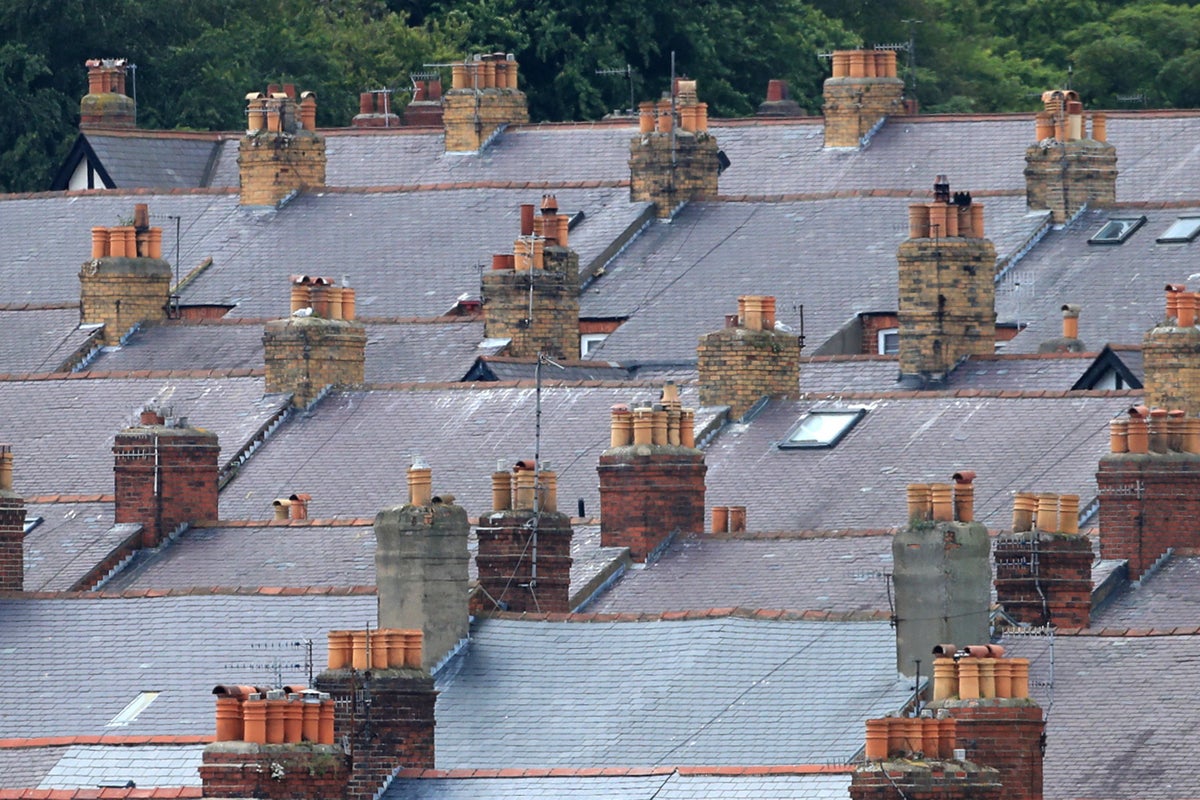
The average UK house price was £33,000 higher in October than a year earlier, after jumping by 12.6%, according to official figures.
The annual rate of change in October accelerated from a 9.9% increase in September, which was partly due to stamp duty changes last year, the Office for National Statistics (ONS) said.
Steadily increasing prices throughout 2022 resulted in the average UK house price reaching a record high.
Across the UK, the average house price in October was £296,000.
On a seasonally adjusted basis, the average UK house price increased by 0.7% between September and October, following an increase of 0.5% in the previous month.
Average house prices in England, Scotland and Wales hit new record levels in October.
The typical house price in Scotland increased by 8.5% over the year, to £195,000.
The average house price in Wales increased by 11.8% over the year, reaching £224,000.
In England, the typical property value jumped by 13.2% annually to £316,000.
The average house price in Northern Ireland increased by 10.7% over the year, reaching £176,000.
Aimee North, ONS head of housing market indices, said: “Annual house price inflation increased in October, although this was mainly because of the sharp fall in house prices at the same time last year following the end of the stamp duty holiday.
“London saw the lowest annual growth throughout the UK and was the only region to show a fall in average house prices between September and October 2022, while house prices in the North East saw the highest annual growth.
“Rental prices reported their strongest rise in six years, driven by increases in the London rental market. East Midlands reported the highest annual rise while Wales replaced London as the region with the lowest.”
ONS figures showed that private rental prices paid by tenants rose by 4% in the 12 months to November 2022, up from 3.8% in the 12 months to October 2022, representing the largest annual percentage change since the records started in January 2016.
Annual private rental prices increased by 3.9% in England, 3.1% in Wales and 4.4% in Scotland in the 12 months to November.
Private rental prices in London increased by 3.5% in the 12 months to November – the strongest annual percentage change since April 2016.
The figures were released amid signs that sharp rises in living costs may have passed a peak.
The rate of Consumer Prices Index (CPI) inflation eased by more than expected, to 10.7% in November, from 11.1% in October.
Mark Harris, chief executive of mortgage broker SPF Private Clients, said: “Inflation slipping to 10.7% will start to ease pressure on the Bank of England but a half-point increase in base rate this month is still expected.
“That said, the pricing of fixed-rate mortgages continues to ease, with five-year fixes now dipping below 4.5%.
“We believe they are heading towards 4% as the cost of funds falls, servicing pressure subsides and lenders look to originate new business in the new year.”
Tom Bill, head of UK residential research at Knight Frank, said: “Despite today’s figures, double-digit UK house price growth is now a thing of the past.
“Even as the reverberations of the mini-budget fade, a more adverse lending landscape is emerging after 13 years of ultra-low rates.
Stretched household finances, rising interest rates and a likely recession means a decline in house prices does look likely over the coming months— Jamie Durham, PwC UK
“When the spring market gets under way next March, mortgage rates will be more than two percentage points higher than at the same point in 2022.
“This will keep transaction volumes in check and means price declines will become more prevalent. Knight Frank expects UK prices to fall by 10% over the next two years, taking them back to where they were in summer 2021.
“We think London prices will continue to underperform the rest of the country, with the exception of prime central areas, which will benefit from a higher proportion of cash buyers.”
Nick Leeming, chairman of estate agent Jackson-Stops, said across its national network of offices agents are “seeing asking prices begin to stabilise as buyer demand falls in line with normal levels that we could have expected pre-pandemic”.
He added: “Analysis of our own data shows that instructions are up year-on-year from 2021, showing that buyer appetite is sustaining.”
Lawrence Bowles, director of research at Savills, said: “Overall, Savills is predicting fewer mortgaged transactions for the rest of this year and in 2023, given these higher interest rates.
“But this morning’s CPI data shows the rate of inflation slowing. We’re expecting this trend to continue next year.
“That should give the Bank of England the freedom to slow and eventually reverse its trajectory of interest rate rises, which will ease pressure on mortgage affordability and allow transaction activity to return to more normal levels in 2024 and beyond.”
Jamie Durham, an economist at PwC UK, said: “Given the current economic conditions, there is considerable uncertainty in the outlook for the housing market.
“However, stretched household finances, rising interest rates and a likely recession means a decline in house prices does look likely over the coming months.”







